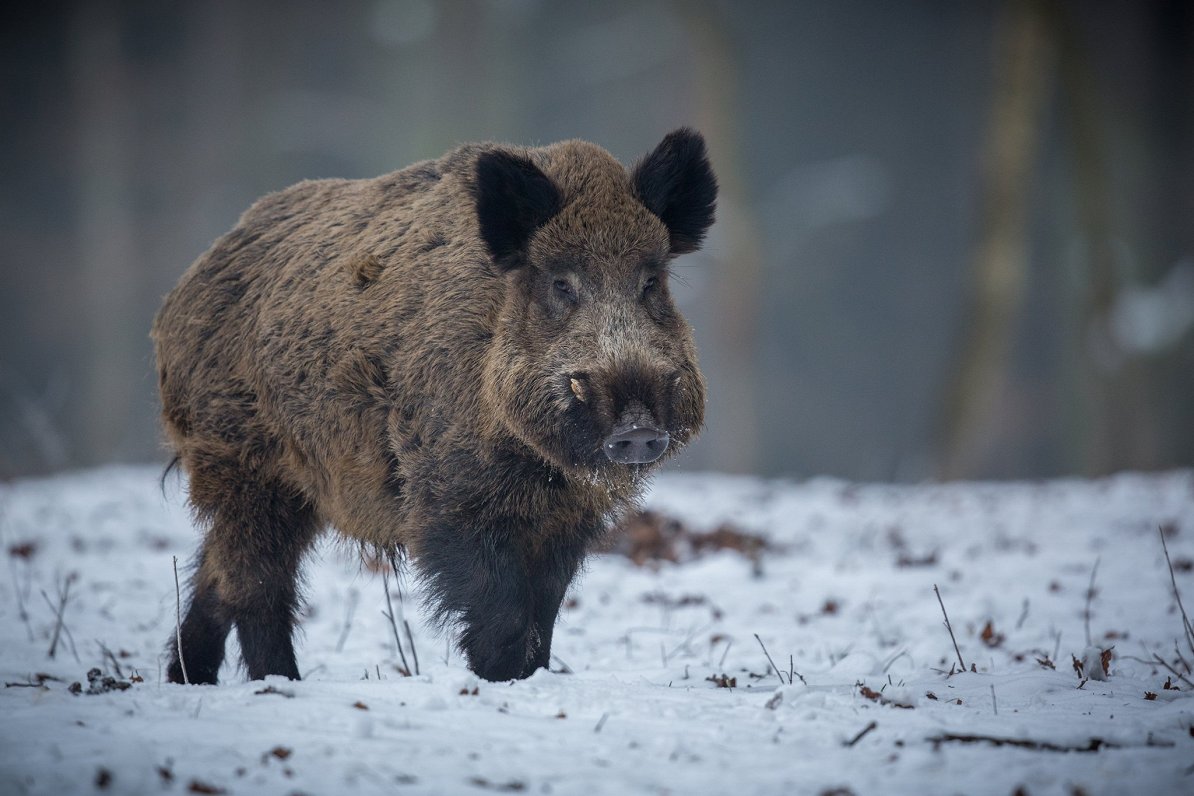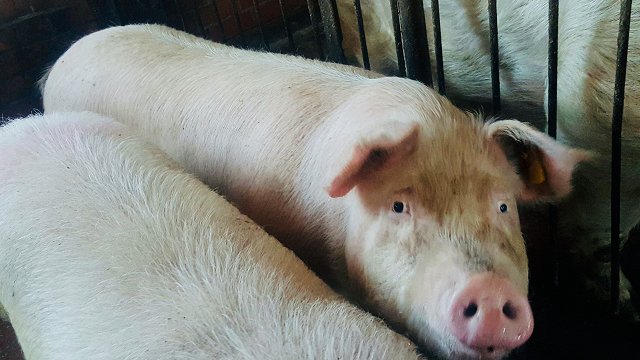The second wave of African swine fever in Latvia is now in full bloom according to Mārtiņš Seržants, Head of the Monitoring Division for Animal Infectious Diseases of the Food and Veterinary Service (PVD).
Compared to a year earlier, the disease increased nearly three times last year.
"Last year, nearly 1300 cases have been reported for wild boar. Currently, it is particularly concentrated in Latgale, there are cases in Cēsis, Valmiera, also in Kurzeme – Tukums, Ventspils, Kuldīga. [..] In the summer of 2022, six cases were detected in domestic pigs. Five of these were small farms and one with a little more than 1,400 pigs," said Seržants.
The director of the Latvian Pig Growers Association, Dzintra Lejniece, estimated that the price of pork still does not cover the expenses, as feed costs have increased considerably. Owners who have fulfilled all the biosecurity requirements but whose animals become ill with African swine fever may receive refunds, for each pig, an average of €128.
"Would like bigger refunds, but it's good to have them. Another question is how quickly this is happening, as we have also discussed with colleagues from other European Member States [..] African swine fever affects us in that we cannot export freely because we are a country affected by African swine fever. It is also a negative trend in Germany, which is also affected, so they cannot export to China. But large Member States, such as France and Spain, are free, Belgium, the Netherlands, and they also export, and this is very good because Europe produces more than it consumes," said Lejniece.
Ingūna Gulbe, head of the agricultural market promotion centre, estimated that the reasons for the low prices of pork are both African swine fever and the overproduction of pork in Europe.
"The price is not exactly adequate because of African swine fever and the inability to export away from the European Union. It is typical for Europe in general that January is the quiet month. First, people have spent money on Christmas and New Year, and January is not the time for big deals in export markets. Due to the fact that demand in Europe is declining, the price has also fallen. And looking forward, there is nothing really optimistic from the point of view of the pig growers, it does not seem that the price is likely to rise significantly. From the perspective of buyers, it's good,” Gulbe said.
Mārtiņš Seržants from PVD recalled the main biosecurity rules to be followed by those cultivating domestic pigs: “In no case do we give domestic pigs anything that came from the field, from the woods, even more – that has not been heat-treated. We do not use litter that could come into contact with wild boar, we change clothing, and avoid any possibility for domestic pigs to come into contact with wild animals as well as dogs, cats. But all others, mushroom-pickers, hikers, birdwatchers, report every dead wild boar found. This information will therefore help with identifying where the disease is."





























